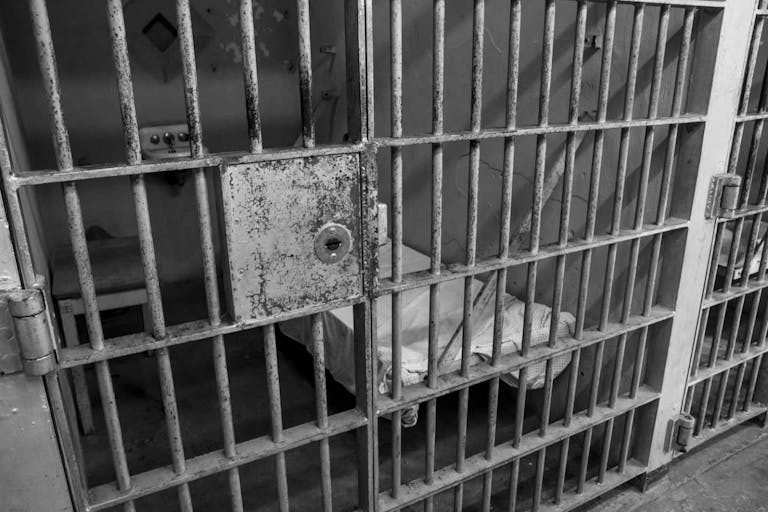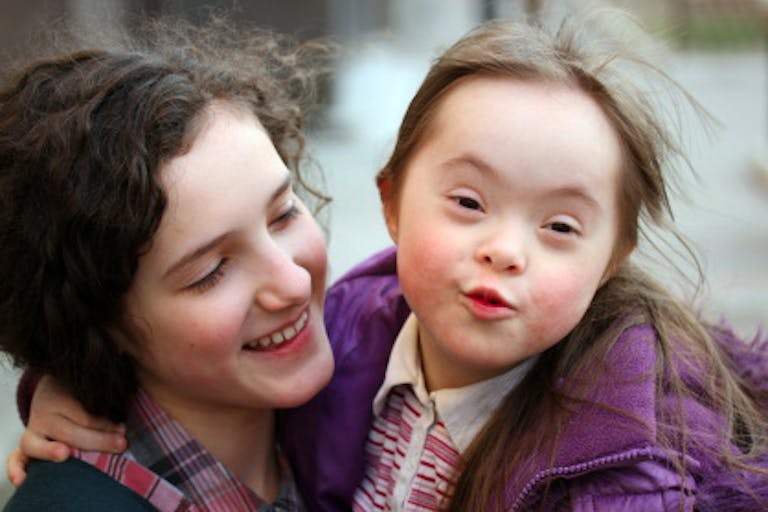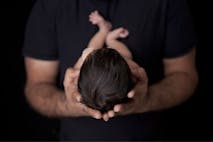
Decades after banning the death penalty, Canada kills inmates by 'assisted suicide'
Nancy Flanders
·
Abortion best choice, a child with a disability “not a blessing” according to Reality Check (part 2)
Part 1 discussed three of Sierra of RH Reality Check’s main points behind her argument that abortion is a good choice when a child is diagnosed with a disability or genetic condition. She goes on to claim that certain families should not have children, that parents turn disabilities into fetishes, and that children with disabilities can destroy a family.
Deciding Which Families Have the Right to Raise Their Children
Sierra believes that there are families who shouldn’t raise children with special needs. She writes:
Special needs children aren’t high-maintenance pets that exist to teach you lessons about fortitude and compassion. They are people[.] […] Not every family can afford the medical care of a special needs child. Not every family can afford the time spent caring for a special needs child, especially if they already have multiple children. To demand that families that know they lack these resources nonetheless give up everything to bring a child into a world where it will be neglected, inadequately treated by doctors, and in all likelihood end up in foster care or, as an adult, homeless, is cruelly insane.
Sierra’s right on one thing: these children are people. However, the theory that certain families just aren’t equipped to care for a child with a special need is a cop-out. It not only sells families short, but is a neon flashing sign of a failure on the part of our country and our communities. Yes, there are people who will struggle more with the extra demands of raising a child with special needs than others will, but how does that lead to a “likelihood” of ending up in foster care? More children with disabilities are living and thriving at home with their families than ever before because of programs that offer support. And why condemn a child to death rather than help the family to cope, or offer the family an alternative such as adoption? There’s a waiting list of families wanting to adopt a baby, disability or not. And why would doctors treat this child any differently from how they treat their other patients? Telling a mother she should abort her baby because she doesn’t have money is insulting and disgraceful. It leaves her feeling trapped, as though her only choice is abortion, and if she does abort, it sets her up for a lifetime of depression, guilt, and regret.
Turning Disability into a Fetish
Sierra writes:
Respecting the rights of disabled people does not mean honoring or celebrating disability itself[.] […] When you argue that children with Down syndrome are ‘special gifts’ or that raising them is a ‘rewarding experience’ for parents, you are appropriating their difficulties and fetishizing their difference. That is the opposite of respecting a disabled person.
Do I think that raising a child with cystic fibrosis is rewarding? Yes. Does that mean I have turned CF into a fetish? No. CF is also frustrating, emotionally exhausting, financially difficult, and stressful. However, so are many other things in life, such as education and work. Do the trials of getting a college degree outweigh the benefits? Absolutely not. It is my positive attitude towards cystic fibrosis, and my reminders to my daughter that life is a gift, which will help her grow into a successful adult. Sierra believes that we should respect people with disabilities, but how can she when she actually believes that their lives are worth less than hers? Her words are more harmful to those with disabilities than she realizes. As Ronnie Sharpe, blogger and creator of Cystic Life, an online community for those with CF, says:
Sierra is absolutely entitled to her opinion. Sadly, as a 32 year-old fully-abled adult male with cystic fibrosis, after reading her opinion I felt dehumanized, minimized and devalued. I thought that’s what she was trying to avoid in this world? She should think about that before she inserts herself into a disease community that she knows nothing about. You can’t ‘Google’ your way to an understanding of the lives of me and my friends.
Blaming Children with Disabilities for Family Problems
Sierra goes on to take the radical stance that children with disabilities are to blame for family problems. Family problems, including divorce, arise from all sorts of events in life. It is the adults, who can’t find the proper way to cope in such hard times, who fail. It is never the fault of an innocent child. However, Sierra writes:
In my own church, there was a woman with two children who got pregnant and found out her child had a fatal defect. She decided against having an abortion, believing that God would honor her and heal her child (or at least provide for it). The child lived 13 years in unspeakable pain, without cognition, undergoing surgery after surgery until she died – and by this time the family had exhausted its resources, the other two children had been practically abandoned. […] That child was not a ‘blessing.’ It was not a ‘rewarding’ experience – though the mother might tell you so out of sheer love and the need to justify her situation. The child’s birth destroyed her family, and she was never even aware enough of her own existence to realize she was loved.
Any decision that this mother may have made regarding the care of her family was not her child’s fault. It wasn’t the child’s birth that the destroyed the family. It was the parents’ actions that caused the harm. To claim that the mother would call raising her daughter a rewarding experience as a way to justify giving birth to the child is only that – a claim, an assumption on the part of Sierra. Every child is a blessing. It is uncompassionate and imprudent to say otherwise. In addition, any one of us, at any time, can become disabled, no matter how much we don’t want to believe it. Jacynda, mom to a child with CF, says:
What would she [Sierra] do if a child was in a car accident and had a head injury leaving them disabled? Why is it okay to select to kill a fetus with a disability, but not a person who acquires a disability later in life? Don’t they bring the same burden to the parents, the siblings, and to the family financial state?
Unfortunately, that may be where our country is headed. We start by killing those who are the weakest and we move on from there, to the elderly, those in nursing homes, and those who can’t speak up for themselves, just as the unborn can’t.
Despite her lack of firsthand experience with disability and genetic conditions, Sierra has decided to throw her support behind the termination of unborn humans with disabilities, as if the act of abortion will lead to the disappearance of disabilities altogether. The world will always include people with disabilities – those born with them and those who receive them later in life. It isn’t abortion that will cure genetic conditions. That will come from studying and working with those with such conditions. In order to cure a disease, someone must first be living with that disease. All that abortion achieves is the destruction of the weakest of us. The most innocent of us. The ones most worthy of our care and protection. Sharpe says it better than anyone:
Do I want to live in a world free of disease, disabilities and suffering? Of course! Do I want to get there by selectively choosing who is worthy enough to exist based on a strand of DNA? Never.
Live Action News is pro-life news and commentary from a pro-life perspective.
Contact editor@liveaction.org for questions, corrections, or if you are seeking permission to reprint any Live Action News content.
Guest Articles: To submit a guest article to Live Action News, email editor@liveaction.org with an attached Word document of 800-1000 words. Please also attach any photos relevant to your submission if applicable. If your submission is accepted for publication, you will be notified within three weeks. Guest articles are not compensated (see our Open License Agreement). Thank you for your interest in Live Action News!

Nancy Flanders
·
International
Nancy Flanders
·
Issues
Angeline Tan
·
Analysis
Cassy Cooke
·
Politics
Cassy Cooke
·
Analysis
Cassy Cooke
·
International
Nancy Flanders
·
Politics
Nancy Flanders
·
Pop Culture
Nancy Flanders
·
Politics
Nancy Flanders
·
Politics
Nancy Flanders
·